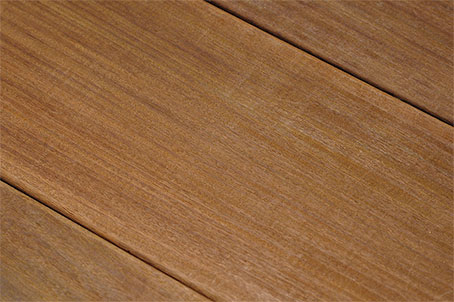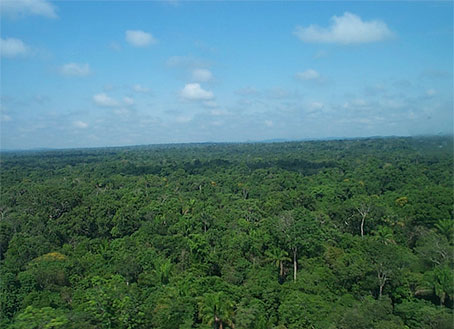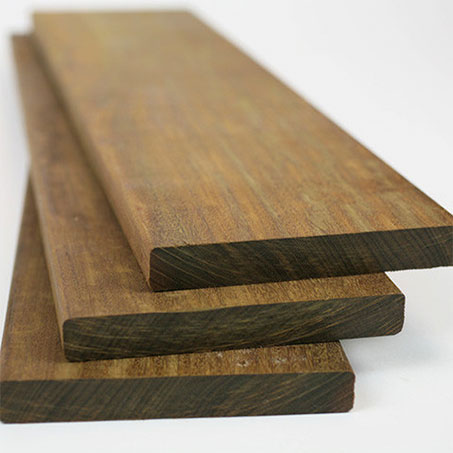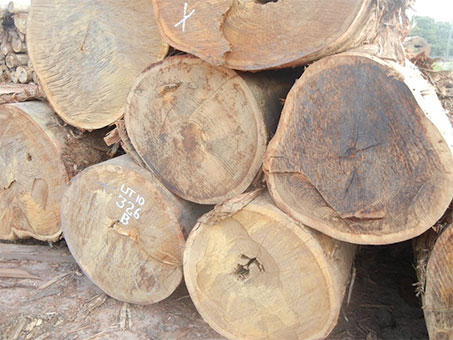IPE – THE IRONWOOD

Ipe trees are from a plant family known as the Bignoniaceae. This plant family has over 750 species in about 120 genera. One genus that stands out is the Tabebuia genus. The Tabebuia genus consists of over 100 species and it is usually found in South America, Central America, North Mexico and the Caribbean. The most popular trees in this family include Poui, trumpet tree, and Ipe (eeh-pay). Ipe trees can grow up to 140-150 feet tall and up to six feet in diameter. The Ipe harvested in Brazil, also known as Brazilian Walnut and Ironwood, is the most popular and requested tropical hardwood wood around the world. The indigenous people of Brazil used wood from the Ipe tree for medicinal purpose, shelter, hunting and making canoes and wooden boats for transportation. In present day, homeowners, builders and architects use this Brazilian wood for outside decks and patios, stairs, sidings, docks, furniture, heavy construction, flooring, musical instruments, doors, window framings, tools, benches, boardwalks, piers and much more. This naturally beautiful wood is in a class of its own, being among the toughest and most long-lasting materials, what makes it notorious for being the wood of choice for EXTERIOR DECKING. Ipe decking wood is highly resistant and durable. In fact, Ipe can last 3-5 times longer when compared to other decking woods like Cedar, Redwood, Teak, Cumaru, Tigerwood or Pressure Treated woods.

This Brazilian exotic hardwood is the perfect wood for outdoor decking because: It has Class A fire rating by the National Fire Prevention Association, meaning it is highly resistant to fire.
– It has a long life span that can last up to 40 years – It has the natural ability to resist to decay, wood rot, termites, mold and fungi
– It has very good resistance to slips, scratches and slivers – It has incomparable insect resistance
- It holds up even under very heavy use
- It will not bow, splinter or twist after installation
- It withstands any weather condition without being treated with any preservatives
- It stays cool even when exposed to extremely hot weather
- It is easy to maintain
- It outlasts composite decking materials

During the 1960’s, the demand for tropical hardwoods was high. Ipe was among the demand for tropical hardwoods, and was used for many projects. The Department of Parks and Recreation of New York City was one of the first organizations to use Ipe decking wood. They used Ipe wood to construct the boardwalk on Coney Island Amusement Park. Many others followed suit and Ipe became the wood of choice for many public landscape architecture projects, such as:
The Brooklyn Bridge Walkway
Atlantic City Boardwalk
Miami Beach Boardwalk
Green Bay City Deck
New York City High Line Park
Houston Discovery Eco Park US
Census Bureau Building in Washington, DC

GENERAL CHARACTERISTICS
SCIENTIFIC NAME: Tabebuia spp.
REGION: Central America, South America, North Mexico and The Caribbean
OTHER NAMES: Brazilian Walnut, Lapacho, Ironwood, Pau Lope, Ipeuva, Bethabara
COLOR: Heartwood colors vary from reddish brown to yellowish brown to dark blackish brown and olive to dark olive, generally uniform, sometimes greenish due to lapachol, distinct from the pale yellow sapwood.
GRAIN and TEXTURE: Grain interlocked, texture medium, luster moderate or lacking depending on the species.
ODOR: Characteristic odor and not distinctive taste.
DENSITY: heavy wood, with density at 12% moisture content of 1,050 kg/m3 and green density of 1,300 kg/m3.
JANKA HARDNESS:
Saturated Parallel = 1.155 kgf or 2,546 lbf
Saturated End = 1.265 kgf or 2,789 lbf
12% Parallel = 1.665 kgf or 3,670 lbf
12% End = 1.471 kgf or 3,243 lbf
DRYING: Air-dries easily. Dries rapidly and without defects when piled up. Kiln drying is easy and rapid, generating slight warping and checking.
WORKABILITY: Regular in planning, good in sanding and excellent in turning and boring. Previous boring before nailing and screwing is advisable. It finishes smoothly.
DURABILITY: It is highly resistant to insects, decay and rot.
PRESERVATION: The obstruction of pores, by oil-resin and tylosis, makes the wood impermeable to preservative solutions, even with pressure-vacuum systems.
USES: Outside decks and patios, stairs, sidings, docks, furniture, heavy construction, flooring, musical instruments, doors, window framings, tools, benches and boardwalks.
VOGEL FOREST PRODUCTS is your natural source for IPE DECKING.
Other TROPICAL HARDWOOD species and specifications can be direct shipped from our sawn mill in Brazil.
Are you looking for a solution for wooden products from Brazil? Come to us! We will provide the best option for you!
Please send your inquiries.
Thank you!
